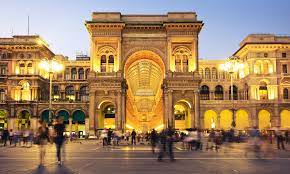Italy: Billionaires moving for tax relief

Claire Carponen
Rome: Introduced in 2017, Italy has a special tax status for foreign nationals, or non-Italian tax residents, that was designed to increase investment from high-net-worth individuals.
The regime allows non-domiciled Italian residents to pay an annual flat-tax of €100,000 (US$107,000) on foreign income instead of ordinary progressive tax rates. This is regardless of the amount of income produced during the tax year. Family members can be part of the scheme and their assets are taxed at an additional annual fee of €25,000.
“It’s difficult to say as it depends on the individual’s tax planning and the taxation of the individual before they moved to Italy. They would need to be paying above the tax threshold [€100,000] annually to make it worth their while,” said Michele Menato, an Italian and English solicitor and senior partner at B & M Law LLP in London.
Under the rules, the Italian “non-dom” regime applies to any individual of any nationality for up to 15 years from the first year of tax residence. It reduces tax filing obligations and has other financial benefits, including the family member allowance, which offers tax savings. The relief has attracted investors previously deterred by Italy’s high rates of taxation.
The tax break covers most non-Italian sources of income, but it does have some restrictions including Italian-sourced income and capital gains on foreign investments and deriving from the sale of a qualified shareholdings in the first five years after opting into the flat-rate regime. They are taxable with ordinary tax rates.
Increasingly, wealthy people are relocating to Italy for the financial benefits of the flat-tax scheme, spurring the country’s luxury property market in the process. Figures show that the number of people taking advantage of the flat-tax scheme have risen from 549 in 2020 to 1,339 the year after, according to data reported by The Guardian.
“It’s a successful tax break for Italy. Thousands have applied for the scheme since it was introduced. These are not insignificant numbers as they are people with substantial wealth,” Menato said.
Due to Brexit, the program has attracted some non-domiciled individuals (people who have a permanent home outside of the country they reside in) or “non-doms” in the U.K., where they are exempt from paying tax on income or capital gains earned overseas.
“Other countries offer something similar to Italy’s ‘non-dom’ regime, but Italy offers a great lifestyle; if you don’t have to work, you can live well there. It is part of the EU and so offers freedom to travel for people who are from places outside of the EU. The tax break is the missing part of the puzzle,” Menato said.





